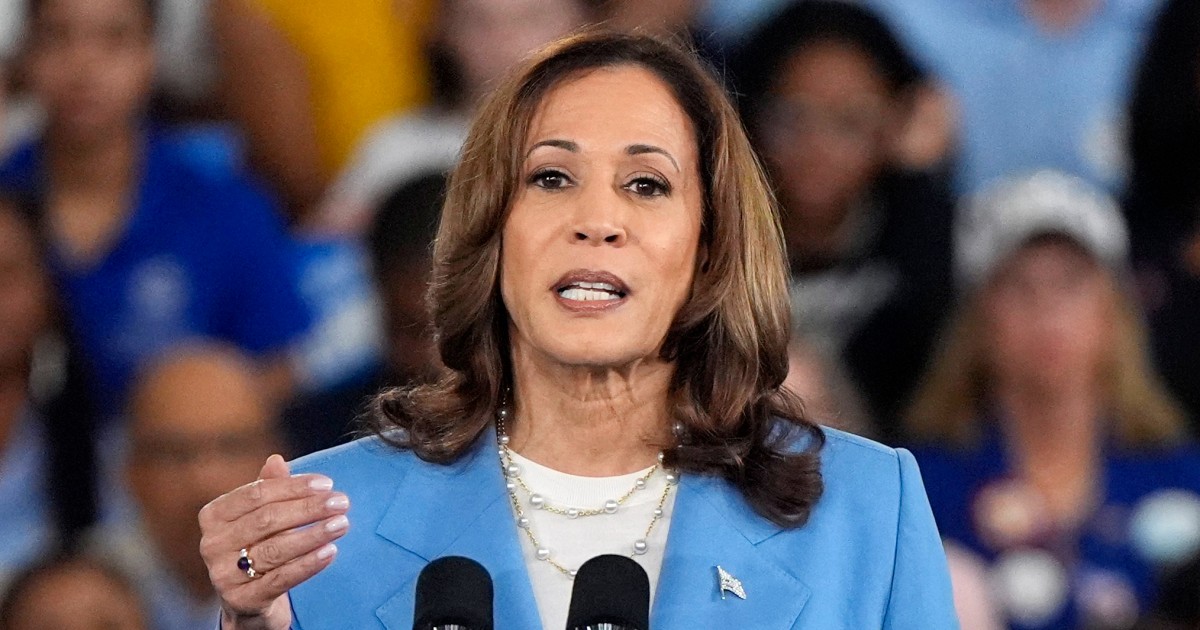The vice president is rolling out her first revenue-raising policy proposal as the Democratic presidential nominee and drawing a contrast with GOP opponent Donald Trump.
Vice President Kamala Harris is calling for raising the corporate tax rate to 28%, her first major proposal to raise revenues and finance expensive plans she wants to pursue as president.
Harris campaign spokesman James Singer told NBC News that she would push for a 28% corporate tax rate, calling it “a fiscally responsible way to put money back in the pockets of working people and ensure billionaires and big corporations pay their fair share.”
…
If enacted, the policy would raise hundreds of billions of dollars, as the nonpartisan Congressional Budget Office has projected that 1 percentage point increases in the corporate rate corresponds to about $100 billion over a decade. It would also roll back a big part of former President Donald Trump’s signature legislation in 2017 as president, which slashed the corporate tax rate from 35% to 21%.
Trump, meanwhile, recently said he would cut taxes even further if elected president, including on businesses.



What is this tax on? Is it profits only? Or something else?
Important questions. Fiscal policy is wildly complex and what’s that saying about the road to hell and best intentions?
I’m here for that conversation. What does tax hell out of them mean? Sounds good to me, but the idea deserves some talk.
I guess it means you send a lobbyist to Washington and invent ludicrous tax deductions so that your company pays a near zero effective tax rate. Just like Amazon!
https://www.forbes.com/sites/stephaniedenning/2019/02/22/why-amazon-pays-no-corporate-taxes/
That’s also because they don’t make much or any profit, right? That’s why I was asking whether they were taxing revenue or profit.
Maybe, but logically they should be taxed on revenue, right? I mean, that’s how we’re taxed as individuals. We don’t get to pay nothing because we took our whole salary and reinvested it into real estate or something. But they do.
You literally described a 401k.
I get your point though. All of our income is considered profit, but if we were taxed like businesses we’d be able to exclude rent and groceries etc.
Except a 401k gets taxed on withdrawals, potentially at a higher tax rate than you were paying when you invested some or even most of it. Also, we can’t invest our whole salary into a 401k, as there’s a hard limit on contributions. Whereas a business never gets taxed on the assets they invested in to offset their profits (except maybe state/local property tax, but then they get to deduct that from federal tax…), plus they get to deduct the depreciation of said asset for years going forward.
You also don’t want to put a huge burden on small growing companies though. I think they should transfer from a profit rate to adding on a revenue rate as the company gets bigger and the revenue increases.
Of course it’s on profit, same as the existing corporate taxes. She’s not proposing a new type of tax, just increasing existing rates.
Then it’s mostly useless for the biggest business.